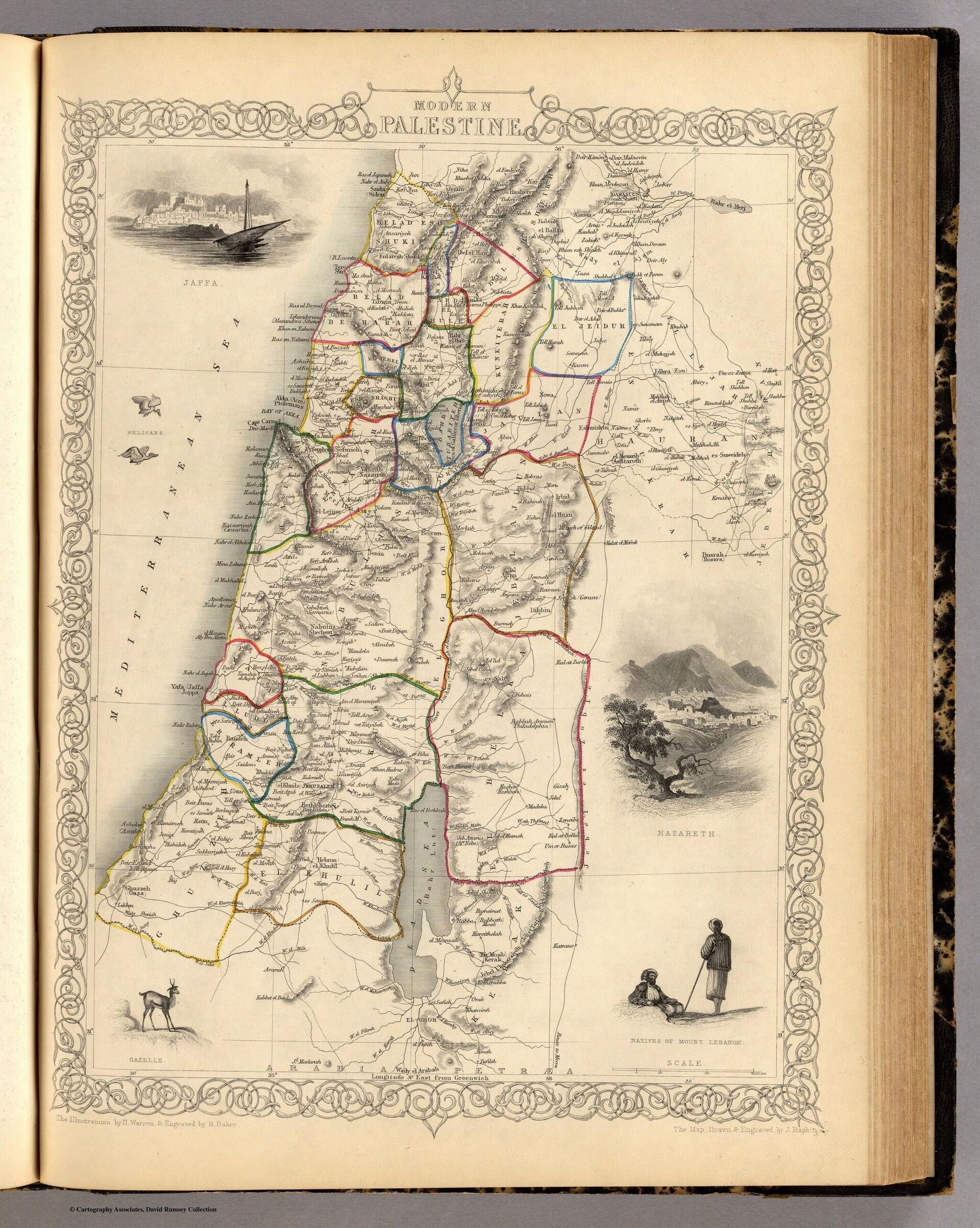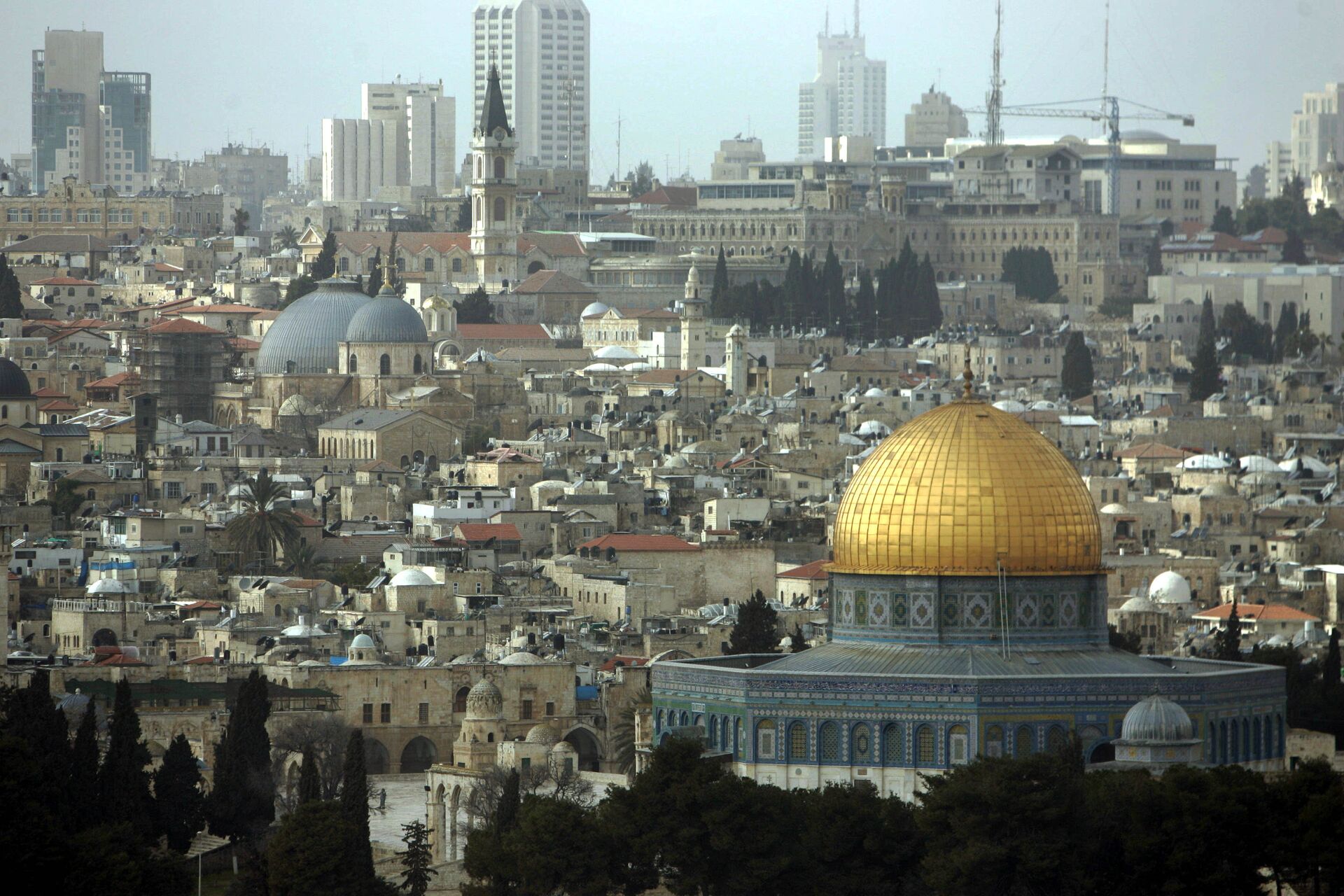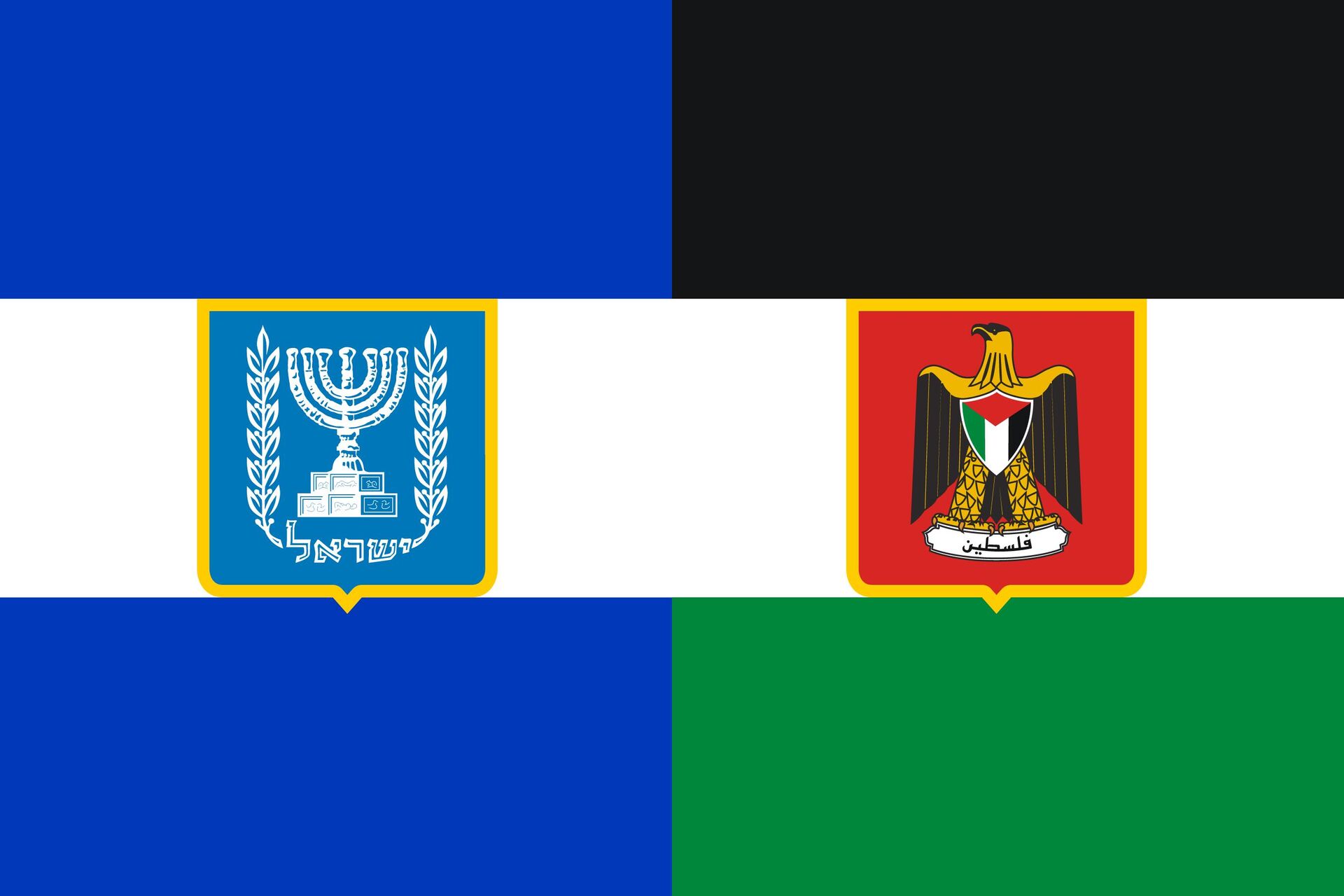https://sputnikglobe.com/20231012/two-state-solution-or-one-state-agreement-what-are-the-options-in-palestines-path-to-statehood-1114148856.html
Two-State Solution or One-State Agreement: What are the Options in Palestine’s Path to Statehood?
Two-State Solution or One-State Agreement: What are the Options in Palestine’s Path to Statehood?
Sputnik International
Hamas-led militants’ surprise offensive deep into Israeli-controlled territory around Gaza has again focused the world’s attention on the 75-year-old perpetual conflict between Jews and Palestinians. Amid the crisis, it’s worth reexamining the history of the Palestinians’ quest for statehood, obstacles standing in the way, and options available.
2023-10-12T18:01+0000
2023-10-12T18:01+0000
2024-01-30T10:27+0000
analysis
palestinians
vladimir putin
palestine
israel
the united nations (un)
zionism
jews
nazism
gaza strip
https://cdn1.img.sputnikglobe.com/img/101333/85/1013338512_0:58:1100:677_1920x0_80_0_0_85633627333c044932e1ad124c8c84b4.jpg
Russia “has always advocated for the implementation of decisions of the United Nations Security Council, meaning, first and foremost, the creation of an independent Palestinian state. This is at the root of all problems,” Russian President Vladimir Putin said in an address at an energy forum in Moscow on Wednesday, touching on the escalating Israeli-Palestinian crisis.Characterizing the Palestinian problem as an issue that “touches the heart” of every resident in the Middle East, and the world’s Muslim community in general, Putin stressed that Russia’s stance on resolving the Israeli-Palestinian crisis “is well known both to the Israeli side and to our friends in Palestine.”A day earlier, in a meeting with Iraqi Prime Minister Mohammed Shia Al Sudani in Moscow on Tuesday, Putin characterized the Israeli-Palestinian escalation of the crisis as a “clear example of the failure of US policy in the Middle East,” and of Washington’s effort to “monopolize” the settlement process.“Unfortunately,” Putin said, the US “was not concerned with finding compromises acceptable to both sides, but on the contrary, put forward their own ideas about how this should be done, putting pressure on both sides...But each time, without taking into account the fundamental interests of the Palestinian people,” instead trying to buy them off through economic handouts.Conflict’s OriginsThe Israeli-Palestinian crisis is the consequence of a “very long…protracted conflict” going back about 150 years, says Dr. Raphael Cohen-Almagor, a professor of politics at the University of Hull in the UK, and Olof Palme visiting professor at the Center for Advanced Middle Eastern Studies at Lund University.The Zionist movement received crucial support from the British during the First World War, with a letter from British Foreign Secretary Arthur Balfour to Lord Rothschild, a leader of Britain’s Jewish community, known as the Balfour Declaration, setting out a formal commitment by London to allow for the creation of a “national home for the Jewish people” in what was then-Ottoman-controlled Palestine.“The settlement of the land increased quite a lot as a result of the rise of Nazism in Germany” in the 1930s, Dr. Cohen-Almagor continued, citing large waves of immigration into Palestine – which by that point was under British mandate rule. “There was another wave of immigration after World War II. In 1947, there was a UN resolution to divide Palestine. That's after the Holocaust and the horrors that Europe had experienced under the Nazi occupation,” including the systematic extermination of millions of Jews. “The United Nations decided on partition, that this land that is called Palestine will be divided into two parts, Israel and Arab.”“The Jews rejoiced and accepted the partition plan. The Arabs inside Palestine…rejected the partition plan with contempt,” and a brutal civil war ensued, with the British mandate folding in May 1948, and Israel formally declaring its statehood, prompting armies from half-a-dozen Arab countries to invade the territory, turning the civil war between Arabs and Jews in Palestine into a wider, regional war.Why Does the Crisis Seem So Intractable?Two-State Solution?The idea of a two-state solution – that is, two separate Israeli and Palestinian states, has been kicked around for decades, starting with the aforementioned 1947 UN plan for the partition of Palestine, which would grant the Palestinians sovereignty over the West Bank and the Gaza Strip, and establish a capital in East Jerusalem.Israel and the Palestinians have held dozens of exhaustive sets of negotiations on the matter, starting with the Madrid Conference in 1991, which culminated in the Oslo I Accord of September 1993 and a ‘Declaration of Principles’ – i.e. a framework for further talks. The outbreak of a Palestinian uprising in Israeli-occupied territories and in Israel proper in the year 2000 reduced support for the Oslo process in Israel.“The last real attempt to resolve the conflict was in 2008,” Cohen-Almagor said, referring to the series of talks stretched out over two years between Palestinian Authority Chairman Mahmoud Abbas and then-Israeli Prime Minister Ehud Olmert.“Since 2008, the two sides have more or less wasted their time. There have been several rounds of violence in 2008-2009, 2012, in 2014, in 2020. And now the most horrendous one is going to be in 2023. And yes, when sides believe in violence and not in talking to each other, that’s the result,” the professor added, predicting that an Israeli ground offensive in Gaza would result in a major humanitarian crisis, since neither Israel nor Egypt appear willing to let refugees into their countries.Is a Two-State Solution the Only Available Option?The two-state solution is not the only possibility for a resolution of the Israeli-Palestinian crisis, which others including the idea of a single state accommodating the interests of all residents, either in the form of a federal state divided into Jewish and Palestinian districts, or a form of confederation providing broad autonomy to members of both communities.The one-state solution idea does not enjoy the backing of the UN or support from Israeli or Palestinian officials, and has instead been popularized by figures including Israeli journalist Gideon Levy and Palestinian author Ali Abunimah. Palestinian proponents of the idea see it as a means to secure fair and equal treatment, while Israelis who support it see it as perhaps the only effective long-term means to stop the seemingly endless cycle of violence.Polling in 2016 by the Palestinian Center for Policy and Survey Research found that 36 percent of Palestinians, 19 percent of Israeli Jews, and 56 percent of Israeli Arabs supported a one-state solution idea.By contrast, polling from earlier this year by the center together with Tel Aviv University found that 33 percent of Palestinians and 34 percent of Israeli Jews back a two-state solution.“A Palestinian state is impossible,” Dr. Mehran Kamrava, a professor of government at Georgetown University in Qatar, believes.“Everyone, including policymakers in the US, is fully aware that the two-state solution has not been tenable for a number of decades now. But the US and the EU, and many others, claim to support it. This rhetorical support for the untenable, impossible two-state solution is because the US does not want to admit that the reality on the ground is apartheid, nor does it want to admit that the only realistic alternative now is a one-state solution,” the academic said.Need for Optimism“We have to be patient," Cohen-Almagor urged, when asked about the prospects for a fair and lasting peace agreement including Palestinian statehood being reached.Cohen-Almagor believes that peace will become truly possible when three key conditions are met, including:
https://sputnikglobe.com/20231012/live-updates-idf-says-carrying-out-large-scale-strike-on-hamas-facilities-in-gaza-1114121115.html
https://sputnikglobe.com/20231012/sy-hersh-how-bibis-opposition-to-two-state-solution-claimed-lives-of-jews-and-arabs-1114146176.html
https://sputnikglobe.com/20231012/lavrov-return-to-un-obligation-of-establishing-palestinian-state-needed-once-israel-hamas-war-over-1114124717.html
palestine
israel
gaza strip
Sputnik International
feedback@sputniknews.com
+74956456601
MIA „Rossiya Segodnya“
2023
News
en_EN
Sputnik International
feedback@sputniknews.com
+74956456601
MIA „Rossiya Segodnya“
Sputnik International
feedback@sputniknews.com
+74956456601
MIA „Rossiya Segodnya“
israel, palestine, palestinian, israeli, jew, jewish, arab, conflict, crisis, solution, resolution, options, one-state, two-state, solution
israel, palestine, palestinian, israeli, jew, jewish, arab, conflict, crisis, solution, resolution, options, one-state, two-state, solution
Two-State Solution or One-State Agreement: What are the Options in Palestine’s Path to Statehood?
18:01 GMT 12.10.2023 (Updated: 10:27 GMT 30.01.2024) Hamas-led militants’ surprise attacks deep into Israeli-controlled territory around Gaza has again focused the world’s attention on the 75-year perpetual conflict between Israelis and Palestinians. Amid the crisis, it’s worth reexamining the history of the Palestinians’ quest for statehood, obstacles standing in the way, and the options available.
Russia “has always advocated for the implementation of decisions of the United Nations Security Council, meaning, first and foremost, the creation of an independent Palestinian state. This is at the root of all problems,” Russian President Vladimir Putin
said in an address at an energy forum in Moscow on Wednesday, touching on the escalating Israeli-Palestinian crisis.
“The discussion at the beginning was about the creation of two independent, sovereign states: Israel and Palestine,” Putin elaborated, referring to the UN’s 1947 Partition Plan for Palestine and the corresponding Security Council resolution. “Israel was established, but Palestine was never created as an independent, sovereign state,” the president said. Furthermore, “part of the land that Palestinians have always considered as originally belonging to them has been occupied by Israel at different times and in different ways, but for the most part, obviously, through military force.”
Characterizing the Palestinian problem as an issue that “touches the heart” of every resident in the Middle East, and the world’s Muslim community in general, Putin stressed that Russia’s stance on resolving the Israeli-Palestinian crisis “is well known both to the Israeli side and to our friends in Palestine.”
A day earlier, in a meeting with Iraqi Prime Minister Mohammed Shia Al Sudani in Moscow on Tuesday, Putin
characterized the Israeli-Palestinian escalation of the crisis as a “clear example of the failure of US policy in the Middle East,” and of Washington’s effort to “monopolize” the settlement process.
“Unfortunately,” Putin said, the US “was not concerned with finding compromises acceptable to both sides, but on the contrary, put forward their own ideas about how this should be done, putting pressure on both sides...But each time, without taking into account the fundamental interests of the Palestinian people,” instead trying to buy them off through economic handouts.

12 October 2023, 04:35 GMT
The Israeli-Palestinian crisis is the consequence of a “very long…protracted conflict” going back about 150 years, says Dr. Raphael Cohen-Almagor, a professor of politics at the University of Hull in the UK, and Olof Palme visiting professor at the Center for Advanced Middle Eastern Studies at Lund University.
“For many, many years until the 19th century, the Arabs had the majority population wise compared to the Jewish people in Palestine, meaning there were more Arabs than Jews, sometimes three times as much, sometimes five times as much,” the professor told Sputnik. “The picture started to change when the ideology called Zionism emerged. Zionism came as a result of pogroms, persecution of Jews in Russia, Ukraine, Eastern Europe. The Jews wanted to have a safe haven for themselves because they wanted to fend for themselves and not to rely on others.” And so, over time, “the Zionist movement was established in the second half of the 19th century, and they slowly came to Palestine to settle the land.”
The Zionist movement received crucial support from the British during the First World War, with a letter from British Foreign Secretary Arthur Balfour to Lord Rothschild, a leader of Britain’s Jewish community, known as the Balfour Declaration, setting out a formal commitment by London to allow for the creation of a “national home for the Jewish people” in what was then-Ottoman-controlled Palestine.
“The settlement of the land increased quite a lot as a result of the rise of Nazism in Germany” in the 1930s, Dr. Cohen-Almagor continued, citing large waves of immigration into Palestine – which by that point was under British mandate rule. “There was another wave of immigration after World War II. In 1947, there was a UN resolution to divide Palestine. That's after the Holocaust and the horrors that Europe had experienced under the Nazi occupation,” including the systematic extermination of millions of Jews. “The United Nations decided on partition, that this land that is called Palestine will be divided into two parts, Israel and Arab.”
“The Jews rejoiced and accepted the partition plan. The Arabs inside Palestine…rejected the partition plan with contempt,” and a brutal civil war ensued, with the British mandate folding in May 1948, and Israel formally declaring its statehood, prompting armies from half-a-dozen Arab countries to invade the territory, turning the civil war between Arabs and Jews in Palestine into a wider, regional war.
“The war was long. It lasted about a year and a half. As a result of the 1947-1948 civil war and then [the wider] war, there were many, many Arab refugees who left the country, about 700,000 people. They call it the ‘Nakba,’ which means ‘catastrophe.’ This is not what they planned. This is not what they intended. They thought that they were going to prevail over the newly founded state. But they lost the war. And as a result of the war 700,000 refugees fled. And until now, many of them, including their children and grandchildren, are in refugee camps in Gaza, in the West Bank, in Lebanon, in Jordan, in Egypt and in Syria. And that’s the birth of the Palestinian problem,” the professor added.
Why Does the Crisis Seem So Intractable?
The ultimate tragedy of Israeli-Palestinian conflict, in Cohen-Almagor’s view, is that “we are talking about justifiable rights of two people on a very small piece of land. Both sides have historical, religious, national claims over Israel/Palestine…And unfortunately, for the most part, for many, many years, both sides opted for violence instead of reconciliation and talking,” he lamented.
The idea of a two-state solution – that is, two separate Israeli and Palestinian states, has been kicked around for decades, starting with the aforementioned 1947 UN plan for the partition of Palestine, which would grant the Palestinians sovereignty over the West Bank and the Gaza Strip, and establish a capital in East Jerusalem.
Israel and the Palestinians have held dozens of exhaustive sets of negotiations on the matter, starting with the Madrid Conference in 1991, which culminated in the Oslo I Accord of September 1993 and a ‘Declaration of Principles’ – i.e. a framework for further talks. The outbreak of a Palestinian uprising in Israeli-occupied territories and in Israel proper in the year 2000 reduced support for the Oslo process in Israel.
In the two decades that followed, more direct talks were held, with the 22-member Arab League endorsing an Arab Peace Initiative in 2002 designed to incentivize Israel to accept peace with the Palestinians by offering normalization with the Arab World in exchange for Israeli withdrawal from the occupied territories (including the West Bank and Gaza, but also Syria’s Golan Heights and Lebanon’s Shebaa Farms), plus a “just settlement” for Palestinian refugees enabling them to return to their homes in Israeli territory if they so wished.
“The last real attempt to resolve the conflict was in 2008,” Cohen-Almagor said, referring to the series of talks stretched out over two years between Palestinian Authority Chairman Mahmoud Abbas and then-Israeli Prime Minister Ehud Olmert.
“Since 2008, the two sides have more or less wasted their time. There have been several rounds of violence in 2008-2009, 2012, in 2014, in 2020. And now the most horrendous one is going to be in 2023. And yes, when sides believe in violence and not in talking to each other, that’s the result,” the professor added, predicting that an Israeli ground offensive in Gaza would result in a major humanitarian crisis, since neither Israel nor Egypt appear willing to let refugees into their countries.
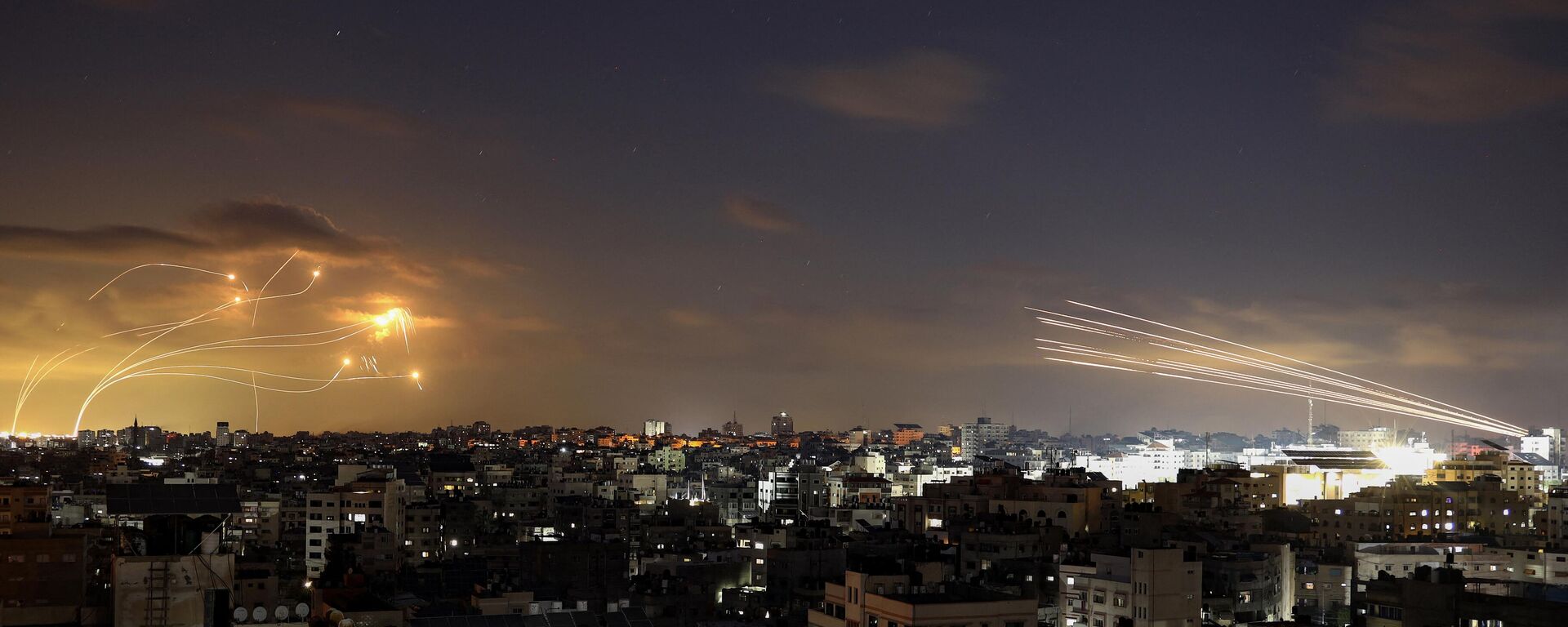
12 October 2023, 16:49 GMT
Is a Two-State Solution the Only Available Option?
The two-state solution is not the only possibility for a resolution of the Israeli-Palestinian crisis, which others including the idea of a single state accommodating the interests of all residents, either in the form of a federal state divided into Jewish and Palestinian districts, or a form of confederation providing broad autonomy to members of both communities.
The one-state solution idea does not enjoy the backing of the UN or support from Israeli or Palestinian officials, and has instead been popularized by figures including Israeli journalist Gideon Levy and Palestinian author Ali Abunimah. Palestinian proponents of the idea see it as a means to secure fair and equal treatment, while Israelis who support it see it as perhaps the only effective long-term means to stop the seemingly endless cycle of violence.
Polling in 2016 by the Palestinian Center for Policy and Survey Research found that 36 percent of Palestinians, 19 percent of Israeli Jews, and 56 percent of Israeli Arabs supported a one-state solution idea.
By contrast, polling from earlier this year by the center together with Tel Aviv University
found that 33 percent of Palestinians and 34 percent of Israeli Jews back a two-state solution.
“A Palestinian state is impossible,” Dr. Mehran Kamrava, a professor of government at Georgetown University in Qatar, believes.
“Palestine has been so effectively dismembered that it can no longer become a viable state. But neither can Israel indefinitely maintain its stifling occupation of Palestine. It cannot get rid of Palestinians and the Palestinian nation, and it cannot maintain its hold as a superior entity over what the Israeli defense minister called ‘human animals.’ The only option remains a one-state solution, one in which the Israelis and Palestinians live side by side,” Kamrava told Sputnik.
“Everyone, including policymakers in the US, is fully aware that the two-state solution has not been tenable for a number of decades now. But the US and the EU, and many others, claim to support it. This rhetorical support for the untenable, impossible two-state solution is because the US does not want to admit that the reality on the ground is apartheid, nor does it want to admit that the only realistic alternative now is a one-state solution,” the academic said.
“We have to be patient," Cohen-Almagor urged, when asked about the prospects for a fair and lasting peace agreement including Palestinian statehood being reached.
“Now, unfortunately, it’s a time of war, of violence. I don’t see in the immediate future any resolution to the Palestinian problem. However, I’m an eternal optimist,” the academic stressed.
Cohen-Almagor believes that peace will become truly possible when three key conditions are met, including:
1.
“When there will be an Israeli leader who is really wanting peace” and “is willing to pay a price for peace, because peace is a very precious commodity…and has the ability to convey the message, persuade the people and deliver peace.”
2.
The “second precondition is to have similarly a Palestinian leader who is committed to peace, willing to pay the price, make concessions and who is able to deliver.”
3.
“And thirdly, the consequences have to be ripe. What do I mean by ripeness? I mean that both parties, Israel and Palestine would understand that if they’re going to wait, they’re going to lose more. So both of them must be pressed to strike a deal.”
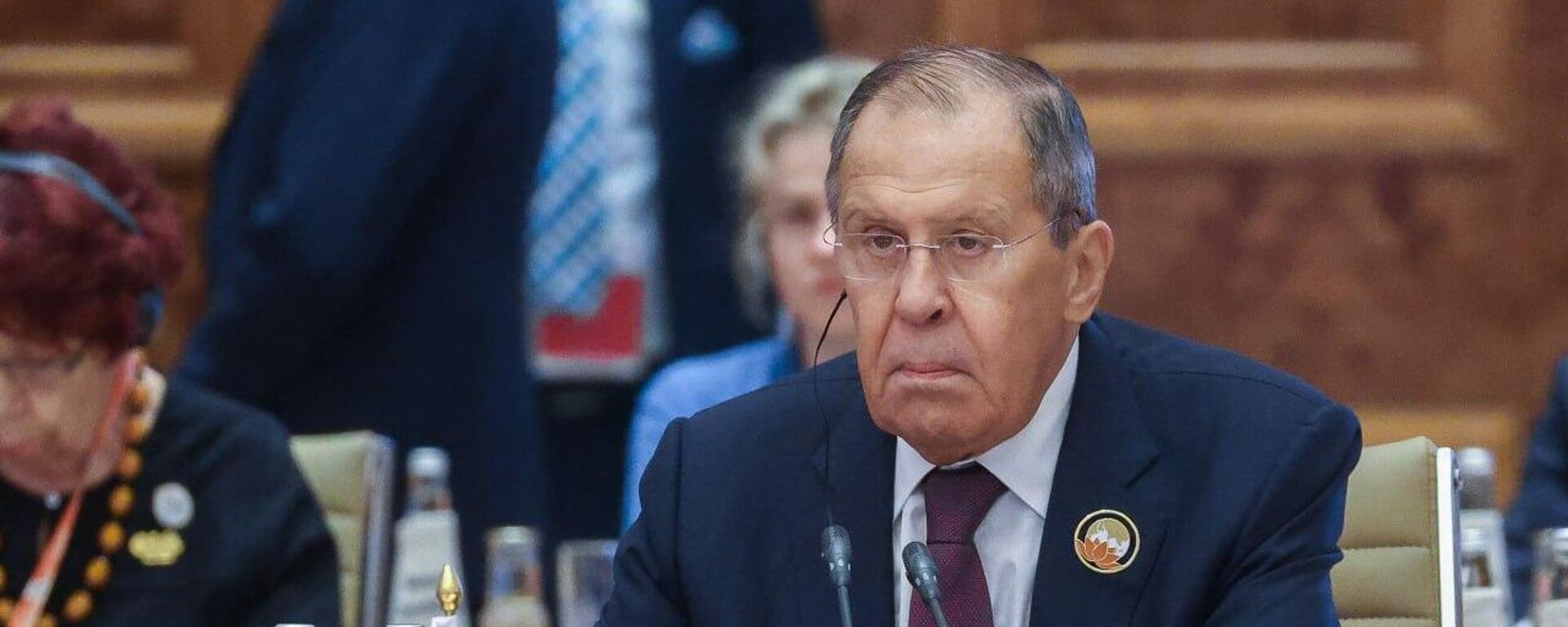
12 October 2023, 07:25 GMT

